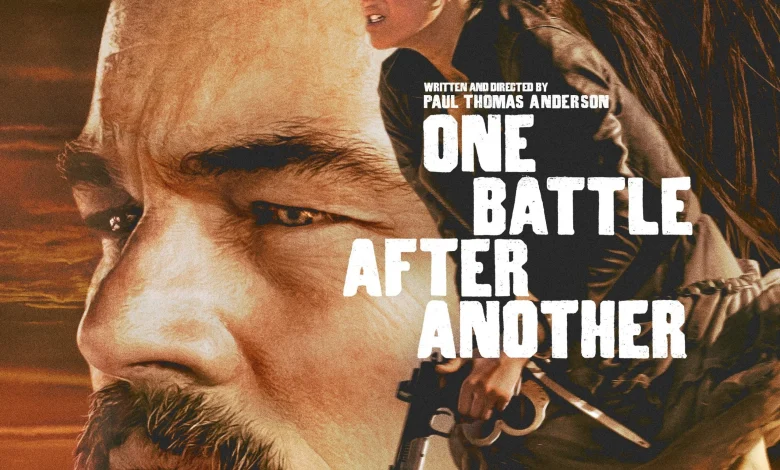A Vegan Review of One Battle After Another

Poster for One Battle After Another – Fair Use
I finally got around to seeing Paul Thomas Anderson’s excellent new film, One Battle After Another, which is a favorite to win Best Picture at next year’s Academy Awards. Leonardo DiCaprio stars as a former member of a revolutionary-adventurist group, similar to the Weather Underground or the Black Liberation Army, who is pulled back into his former life, when his daughter, played by Chase Infiniti, is kidnapped by agents of a fascist American government.
I had some minor criticisms. For instance, I wish the absurdism was toned down a little bit, especially in the characters played by Teyana Taylor and Sean Penn, who often seemed distractingly over-the-top. I assume most of this can be traced back to Anderson’s script, which is inspired by Vineland, a 1990 novel by Thomas Pynchon. In my understanding, the book follows ex-radicals of the 1960s and 1970s during President Ronald Reagan’s administration.
Anderson moves the setting to the present day, but beyond their organizational forms, the activists still are very much of the New Left culturally, which feels anachronistic, considering DiCaprio’s character was supposed to have been born in the 1980s. As just one example of many, the characters use lyrics from a Gil Scott-Heron song as a password. Wouldn’t it have made more sense for younger activists to be quoting Rage Against the Machine, or something along those lines?
There’s not much in the movie that directly addresses the animal movement, my political home. That said, some of the questions the film implicitly raises are universal. For example, just as the New Left spawned organizations like the Weather Underground and the Black Liberation Army, it also hatched analogous groups in the anti-speciesist struggle, like the Animal Liberation Front. Debate about the ALF is a lot less salient than it was in decades past, but it persists.
Benicio Del Toro’s character — and at the very end of the film, Infiniti’s — provide different models of opposition to fascism, based to a greater extent on mass resistance. Needless to say, the question of what model is most effective feels very timely. Even if President Donald Trump is defeated, I fear the threat of right-wing authoritarianism will be with us for the foreseeable future, unless the Democratic Party is forced by its base to take dramatic action.
Those who lived through the prior global struggle against fascism are largely gone. Activists from more well-established movements have a rich scholarship to draw from, which details how their predecessors navigated the period. Unfortunately, if such scholarship exists in the animal movement, I’m unaware of it. I’ve read some books that deal with the topic tangentially, but I think a historian would be doing a great service by exploring it in further depth.
Abstinence from meat receives a brief mention in the film, as Infiniti’s character is provided refuge by what is described as a group of vegetarian nuns, made up of former revolutionaries. Apparently, these fictional women were inspired by the real-life Sisters of the Valley, who operate a marijuana business, practice an alternative spirituality, and consume a vegan diet during certain periods of the year. The group was founded by a former Occupy Wall Street activist.
On the whole, I thought One Battle After Another was fantastic. While I haven’t done a very good job keeping up with 2025 releases, of those I’ve seen, either Anderson’s movie or Ryan Coogler’s Sinners would likely be my favorite. Meanwhile, DiCapiro continues to put together an incredible body of work. I was looking through his filmography over the past couple of decades and there are very few titles I don’t like. Infiniti was very impressive in her feature debut.





